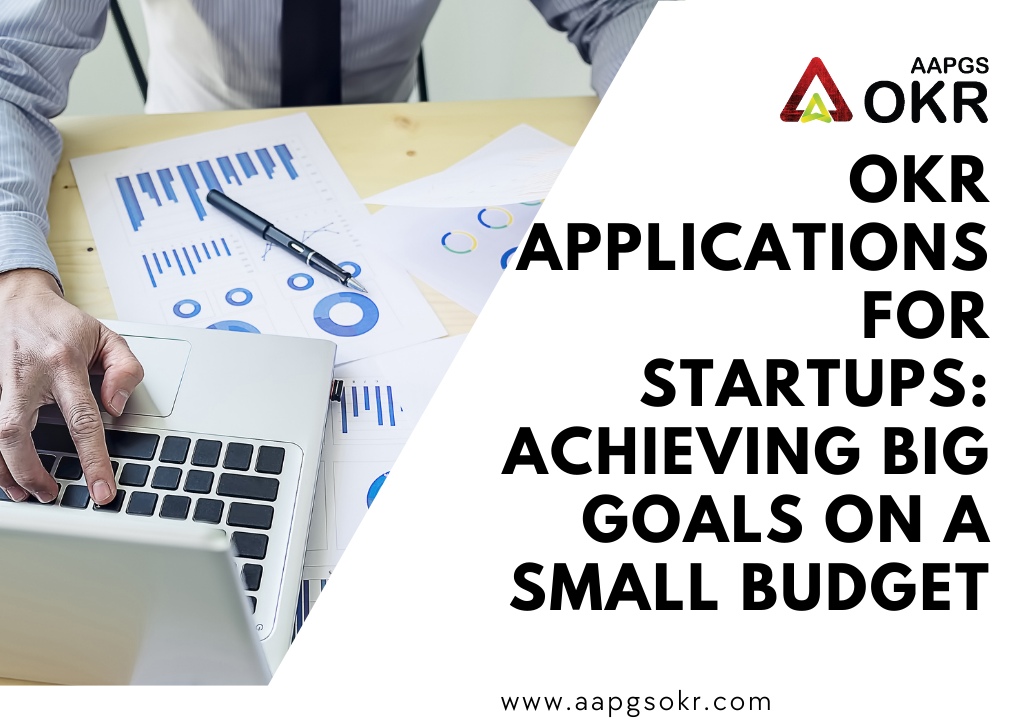Startups usually struggle with big dreams on a small budget. During these early days, it is vital for entrepreneurs to organize their operations, remain focused, and pursue their most critical objectives. The OKR process can be the foundation for thriving start-ups, as it can assist organizations in establishing quantifiable objectives and monitor progress toward attaining them.
Key Advantages of OKR Software for Startups
Improved Focus and Clarity
- Startups must focus on what is most important to thrive. OKR implementations assist in defining and monitoring key goals, ensuring that each member of the team is on the same page and working towards the same goal.
- Having well-defined, measurable key results prevents startups from being distracted by things that can sidetrack them and ensures all effort is fruitful.
Flexibility and Adaptability
- OKR applications provide flexibility in tweaking goals because of changes in market conditions, emerging opportunities, or evolving priorities among team members.
- If you want to shift timelines, goals, or resources, OKR software provides convenience in making that adjustment and course correction.
Monitoring Progress in Real-Time
- One of the biggest challenges startups face is tracking progress in a fast-paced environment. OKR apps allow teams to measure performance in real time, providing valuable insights and analytics.
- This visibility ensures that entrepreneurs can make data-driven decisions and course-correct when necessary to stay on track.
Cost-Effective Solutions for Small Teams
- For startups, every dollar matters. Fortunately, there are affordable OKR management tools specifically for small companies and lean teams.
- The tools cost just right for entrepreneurs, and scalable options are available to grow along with the business as it grows.
- OKR apps for startups enable you to get robust features without the hefty premium that usually comes with enterprise-level solutions.
Streamlined Collaboration and Alignment
As your team scales, it becomes difficult to keep everyone aligned. OKR software facilitates collaboration by getting the entire team aligned to common goals and open key results. This minimizes confusion, reduces silos, and enables accountability culture, guaranteeing that everyone is working toward unified business objectives.
Top OKR Software for Scaling Startups
There are numerous OKR tools on the market designed specifically for startups and small businesses.
Economical OKR Apps for Small Teams
- Tools such as Weekdone and Perdoo are tailor-made for small teams, with user-friendly interfaces and fundamental features such as setting goals, team alignment, and tracking progress at a low cost.
All-Inclusive OKR Management Tools for Entrepreneurs
- These platforms offer deeper integrations and advanced reporting features, ensuring that your startup has the flexibility to grow while maintaining clear goals and performance metrics.
Cost-Effective OKR Software for Lean Budgets
- For tight-budget startups, Profit.co is a great option. Providing a free version and low-cost paid options, it provides business owners with important OKR features such as tracking of goals, live updates, and monitoring of progress without putting a hole through the company budget.
Implementing OKRs in Your Startup: A Step-by-Step Guide
- Begin with Defining Objectives: Start by outlining your top three to five high-level goals. They should be specific, measurable, and achievable in the short to medium term. Ensure that they are aligned with your long-term business strategy.
- Establish Key Results: For each goal, outline clear and quantifiable key results. These must be actionable and measurable so that you can monitor progress and performance toward each goal's accomplishment.
- Monitor Progress Regularly: Use your OKR app to regularly track progress. Daily or weekly check-ins allow your team to stay aligned and make any necessary adjustments. This helps ensure that you’re always moving toward your goals.
- Review and Adjust: Startups are dynamic, and so are your objectives. OKRs are meant to be flexible. Regularly review your OKRs to ensure they remain relevant to your business and adjust them as your startup evolves.
Why AAPGS OKR is the Best Solution for Startups
For startups, the selection of an OKR tool is pivotal to success. AAPGS OKR provides an end-to-end, easy-to-use solution built specifically for startups. Whether you have a small team or an expanding business, AAPGS OKR gives you the agility to establish clear objectives, monitor key results in real time, and rapidly change goals as your business changes all within a cost-effective platform.
Conclusion:
OKRs are a critical tool for startups who want to set ambitious goals without sacrificing resources. With cost-friendly OKR apps, startups can align their teams, track progress, and find success all on a budget. AAPGS OKR is the ideal solution for entrepreneurs who want to implement the OKR framework easily and at a low cost. Start with AAPGS OKR today and see your startup's goals become real, quantifiable results.
FAQ
- Which part of an OKR defines what needs to be achieved?
An Objective is simply what is to be achieved, no more and no less. By definition, Objectives are significant, concrete, action oriented, and inspirational. - What will help you measure the success of your OKR implementation?
Tracking and measuring OKR progress is essential for the success of an organization's OKR implementation. This step involves defining metrics and key performance indicators, establishing regular check-ins and progress reviews, identifying areas for improvement and adjusting as needed. - What is the OKR goal-setting process?
To create an OKR, executives first set annual, quarterly or even monthly objectives. It is then up to managers to set performance goals for their teams. - How many key results per OKR?
Each Objective should be supported with 3-5 Key Results that lay out how you measurably achieve them. A Key Result will explain how you follow the North Star. - What are smart criteria in goal-setting?
SMART goal setting utilizes a framework where goals are Specific, Measurable, Achievable, Relevant, and Time-bound.

